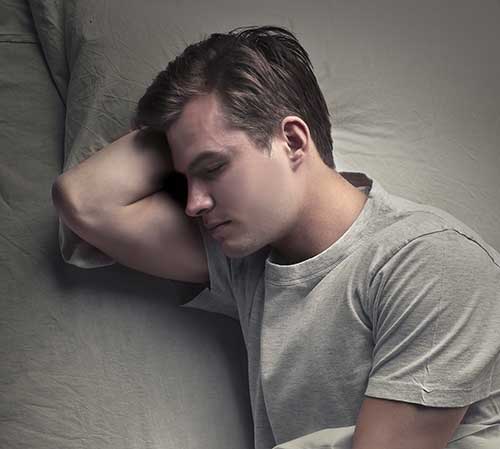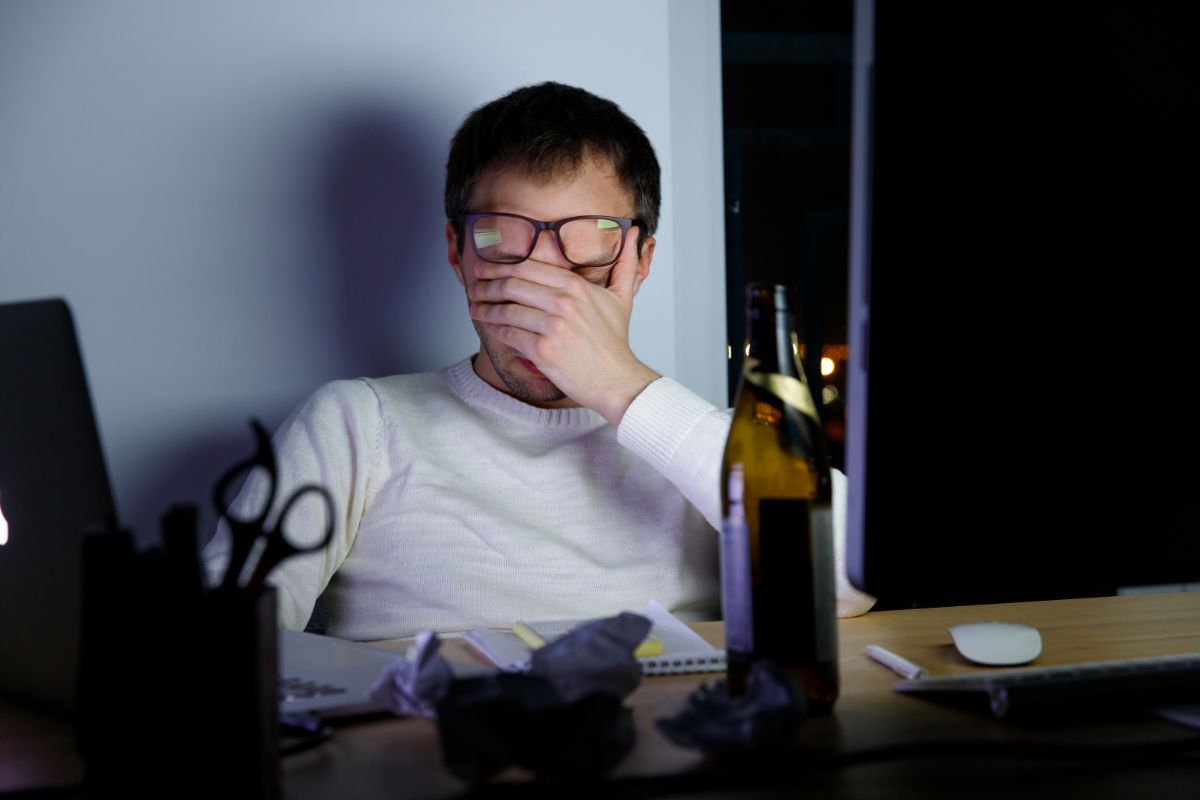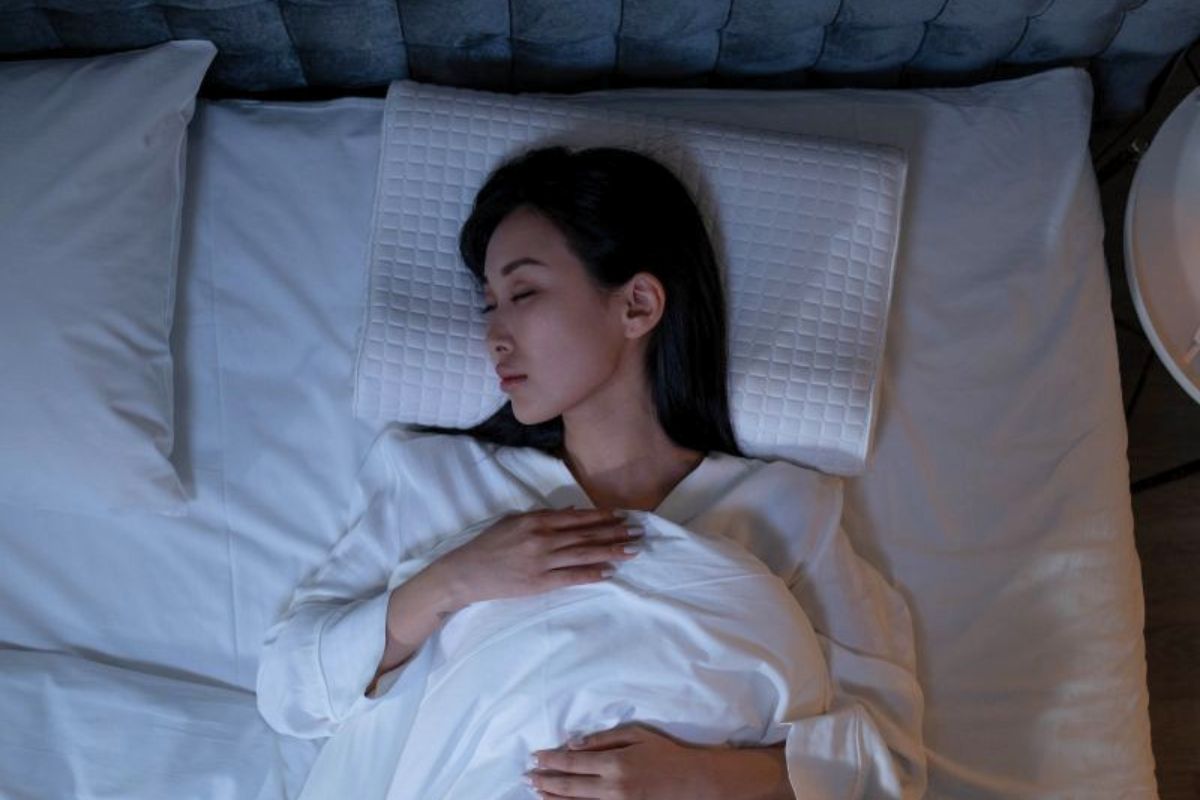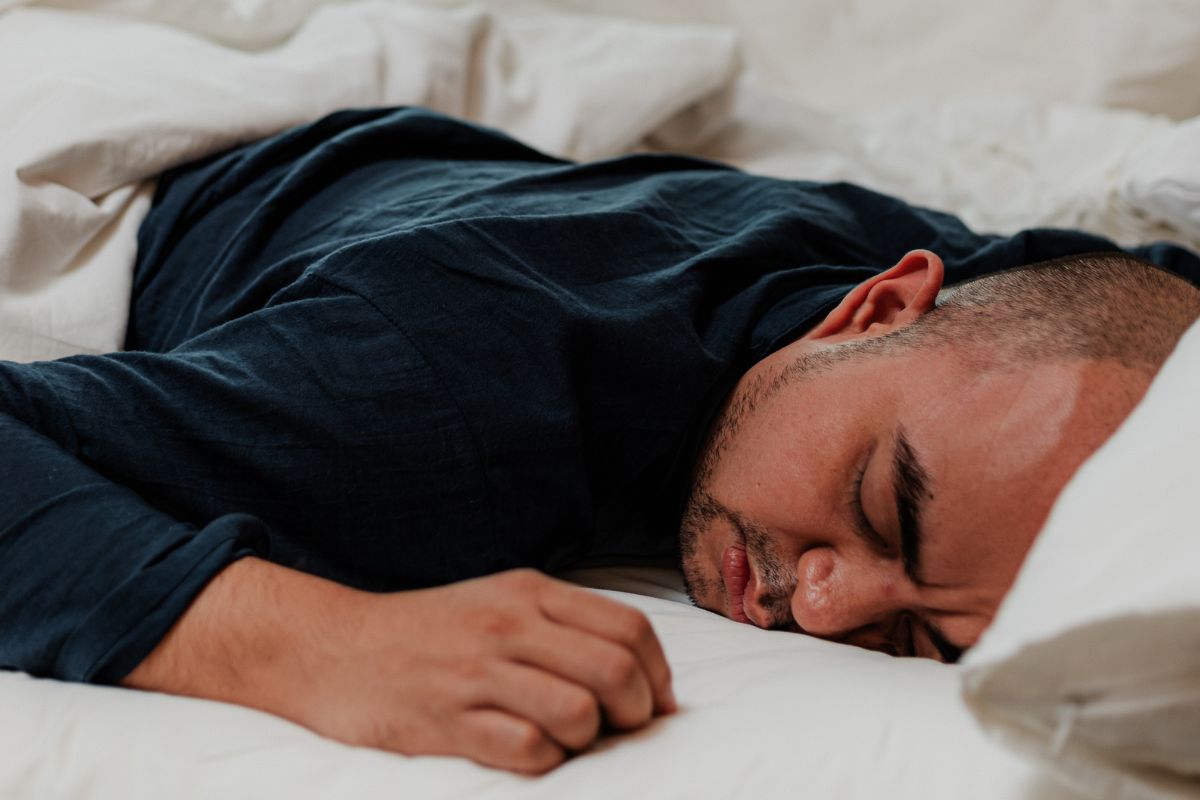Consumer advocate, Ralph Nader, is still immediately associated with vehicle safety even though his scathing book about the car industry “Unsafe at Any Speed: The Designed-In Dangers of the American Automobile” was published over 50 years ago.
Today we take ABS braking, crash crumple zones and air bags for granted. But what about something as simple as a sleep aid pill? How safe are the drugs we take on a nightly basis?
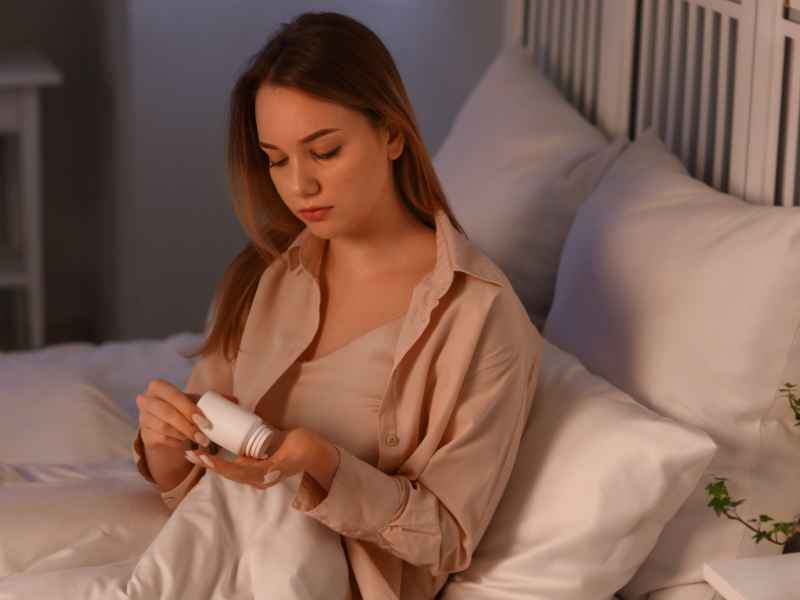
We all want a quick fix, but what about a safe fix?
It sometimes seems like modern Western medicine is all about the quick fix that masks the symptoms. In our want-it-done-yesterday, multitasking, time crunch society we want a magic pill for everything including a sleep aid pill to help us rest at night so we can jump back on the hamster wheel refreshed and ready for more in the morning.
Let’s take a look at some basic questions.
- Is taking a sleep aid pill safe?
- What types of sleep aid medications are there?
- Should you take a sleep aid pill?
How safe is taking a sleep aid medication really?
With modern sleep medications there is less concern with regard to side effects and dependancy, however most still come with caveats.
While some sleep aids like Ambien have been in the news for potentially dangerous side effects like sleepwalking (and even sleep driving!) these cases are relatively rare.
A real concern is developing tolerance and dependancy. The good news is that dependancy is usually only psychological and not physical. However, physical dependance is still a risk, usually with the older, now less prescribed medications.

What types of sleep aid pills are there?
There are several classes of drugs that your doctor might prescribe as a sleep aid medication. There are also over-the-counter (OTC) sleep medications like diphenhydramine that is relatively safe.
Diphenhydramine is often found in allergy medications and causes drowsiness. It is the active ingredient in Nytol, Excedrin PM and Tylenol PM. It is often used for intermittent mild insomnia and should not be used long-term. It does have side effects including confusion, so it should not be used by those over 65 or by young people.
Other sleep medications like Ambien, Lunesta and Sonata require a prescription. These meds affect the selective gamma-aminobutyric acid (GABA) receptors in the brain.
Psychological and physical addiction a risk with sleep aid meds
While Ramelteon is relatively safe with few side-effects and no significant risk of physical addiction there is still the potential for psychological dependance as with all sleep aids.
Old-school drugs like Ativan, Halcyon, Valium and Xanax in the benzodiazepine class are not often prescribed strictly as sleep aids anymore. They are used more for anxiety and relaxation and come with a real potential for physical addiction and abuse.
Similarly, drugs like Trazodone, Adapin, Elavil and Aventyl are primarily used for depression and chronic pain and their use as a sleep medication is off-label in most countries. These drugs can have significant side-effects and you will need to discuss if their use is appropriate for you with your doctor.
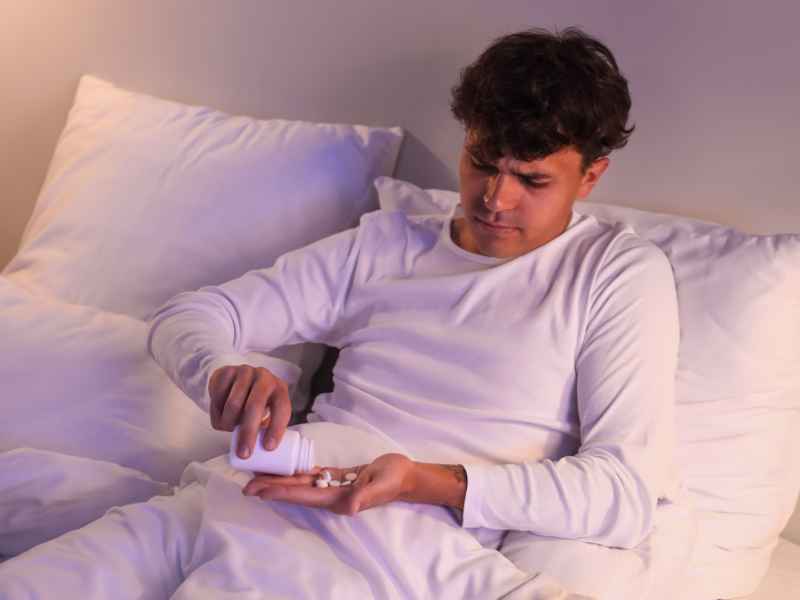
Should you take a sleep aid pill at all?
All of the drugs mentioned come with a list of pros and cons and it’s sometimes hard to know if you should take a sleep aid pill at all. Getting the right amount and quality of sleep is vital to our overall health and cannot be ignored.
Whether or not a particular sleep medication works can vary greatly from person to person depending on things like their age, illness, genetics, and even stressful events in their life. Finding a sleep aid medication that is safe for you, whether it is just for the short term or longer will have to be done in consultation with your doctor and may require a bit of trial and error.
While some may object to taking any sleep aid pills at all citing the risks and side-effects, it may actually be necessary for you at this time. The key thing to keep in mind is safety. What is the best thing for you to do? Not getting the sleep you need also has risks and side-effects. You have to find the balance that works best and is safest for you.
Don’t just go with something you heard about on television, or on the internet, or even the first thing your doctor suggests. Get informed because none of these drugs should be taken lightly.
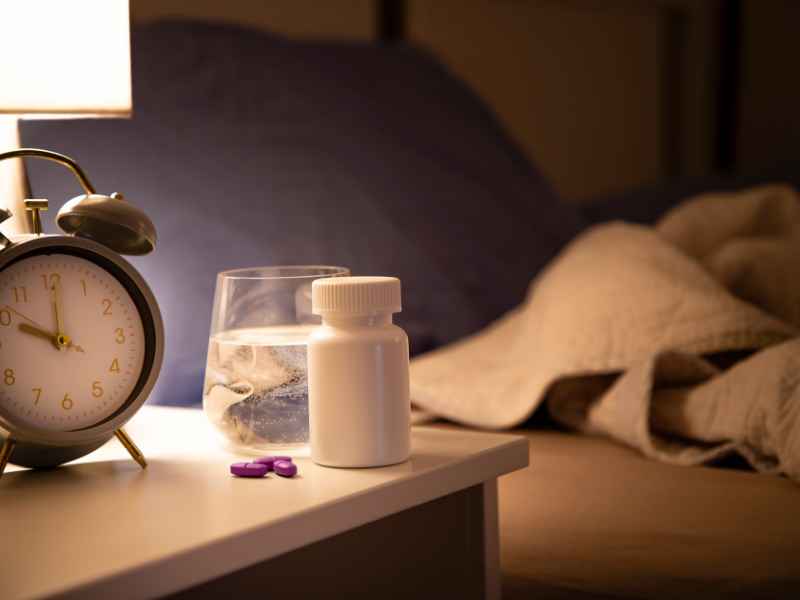
Don’t make the mistake of jumping straight to a sleep aid pill
Have you tried other, less risky alternatives? Do you have good sleep hygiene (i.e. no food, alcohol, caffeine, exercise right before bed; quiet, dark, temperature controlled environment for sleep).
Start with the less drastic measures. You have a morning routine to get you ready for the day. Develop and wind-down routine to get you ready for sleep. Try herbal tea, a relaxing book and calming music before jumping straight to brain altering, potentially dangerous pharmaceuticals.
There are sleep aid pills available if you need them. Carefully consider the benefits and risks in consultation with your doctor to find the safest way to get the sleep you need.
Just don’t go to sleep while driving your car. That’s still not safe at any speed.


